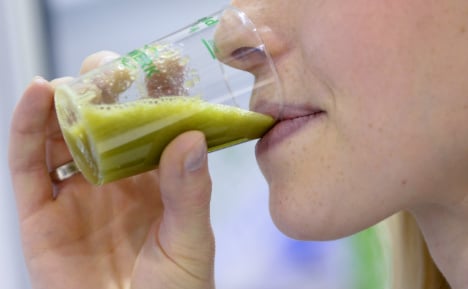The party to mark the opening of Dandy Diner had only started 20 minutes earlier in the rapidly gentrifying Neukölln neighbourhood in southeast Berlin.
Such events are a common sight in the capital: a Facebook event offers free food and drink or the prospect of being seen among the young, beautiful people to create buzz around a new shop or restaurant.
But on Saturday evening shortly after 8pm police decided that the situation was already spiralling worryingly out of control.
“It was simply too full,” a spokesperson told Berlin daily Morgenpost, explaining that with the crowds spilling into the road, police were no longer able to guarantee their safety.
By that time there were already 300 people packed into the restaurant in the hip Neukölln neighbourhood, and a further 500 waiting outside.
The crowd was so large that some were standing on the road on Karl-Marx-Strasse, one of Neukölln’s main streets, and others were crowding into the island in the middle.
Das bisher schönste Bild meiner #WG & der eskalierten #DandyDiner-Eröffnunghttps://t.co/pWM7k49rQH#Neukölln @welt pic.twitter.com/BLNOCOHrJ5
— Felix Herzog (@flecks) 17. April 2016
But, law enforcement refused to budge and told the owners that they had to close down the party immediately, or they would be forced to clear out the shop themselves.
Vegan restaurants are surprisingly contentious places in the German capital, as they are seen by many as vapid hipster fashion symbols, whose opening normally heralds the gentrification of a neighbourhood and rapidly rising rents.
Dandy Diner seems to have created a buzz among Berlin's trendies because of the fame of its owners, two well-known fashion bloggers.
One of them, Carl Jakob Haupt, told Bild “I think it’s a shame that the party ended so quickly. But in the end I’m satisfied. It was the best restaurant opening that there’s ever been.”
But not everyone was so happy.
One commentator wrote one the restaurant's Facebook page: “Vegan burgers for the gentrification yuppies. That's just what Neukölln needed! Karl Marx Strasse is already dying out because the rents are going up so much… but as long as people get a posh burger…”
Neukölln is a traditionally working class neighbourhood with a large immigrant population from the Middle East. For a long time the neighbourhood was associated with high levels of crime and failed integration policies.
But more recently young people have moved in, leading to rises in rents as well as an increase in hip drinking holes and clubs.
In response to the Facebook post, Dandy Diner said that “long-term residents can also be happy to have a vegan alternative in their neighbourhood.”
Whether the Turkish residents of Neukölln will being giving up on local Döner and Pide joints and lining up for a beetroot tzatziki sandwich or a marinated tofu burger any time soon, only time will tell.



 Please whitelist us to continue reading.
Please whitelist us to continue reading.
Member comments